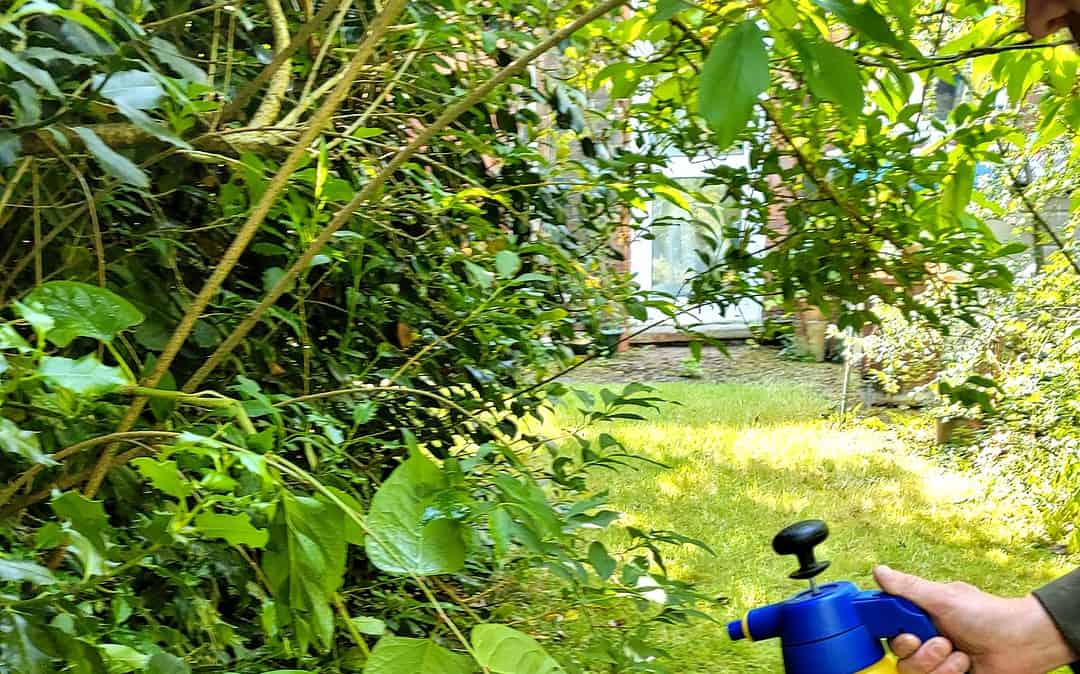What will choke out Japanese knotweed?
Japanese knotweed is an extremely aggressive and invasive plant, making it difficult to control once established. However,
There are some methods that can help choke out or control its growth:
- Herbicides: Using specific herbicides that target Japanese knotweed can be effective. However, herbicides should be applied by licensed professionals to avoid harming other plants in the area.
- Repeated Cutting: Consistent cutting or mowing of Japanese knotweed throughout the growing season can weaken the plant over time. This method requires diligence and persistence as the plant may regrow quickly.
- Smothering: Covering the Japanese knotweed with a non-transparent material, such as heavy plastic or a thick layer of mulch, can prevent sunlight from reaching the plant and eventually lead to its death.
- Digging and Removing: Physically digging out the Japanese knotweed roots can help reduce its growth. However, this method must be done carefully to ensure all root fragments are removed, as they can regenerate new plants.
- Introducing Natural Predators: In some regions, introducing natural predators or insects that feed on Japanese knotweed can help control its spread.
- Plant Competition: Planting other fast-growing, aggressive plants in the area can help compete with Japanese knotweed for resources, potentially limiting its growth.
- Soil Treatments: Certain soil treatments can inhibit the growth of Japanese knotweed. These treatments may be used in combination with other control methods.
It’s important to note that Japanese knotweed control requires a long-term strategy and continuous effort. Repeated monitoring and maintenance will be necessary to prevent its reestablishment. Moreover, in some regions, Japanese knotweed is subject to specific regulations due to its invasive nature, so it’s essential to check local laws and guidelines before taking any action. Seeking advice from local experts or horticulturists can be beneficial in developing an effective control plan.
Will it be ok for me to hide Japanese knotweed by covering with a thick plastic sheet?
While covering Japanese knotweed with a thick plastic sheet can temporarily suppress its growth by blocking sunlight, it is not a recommended long-term solution for several reasons:
- Temporary Suppression: While the plastic sheet may prevent sunlight from reaching the plant, Japanese knotweed is resilient and can eventually push through or find openings in the covering to continue its growth.
- Spread of Rhizomes: Japanese knotweed spreads primarily through underground rhizomes, which can grow horizontally and pop up in new areas. The plastic sheet may not completely prevent this spread, and the knotweed could emerge from the edges of the covering.
- Environmental Impact: Using plastic sheeting as a long-term method to hide Japanese knotweed can have negative environmental consequences. Plastic waste is harmful to the environment and takes a long time to decompose. It is not an eco-friendly solution.
- Legal Implications: In many regions, Japanese knotweed is considered an invasive species, and hiding or failing to control its growth may be against local regulations and legal requirements. You may be obligated to properly manage and disclose the presence of Japanese knotweed on your property.
Instead of attempting to hide the Japanese knotweed, it’s better to take more effective and responsible measures to control or eradicate it. This can involve hiring professionals to apply herbicides or using other control methods discussed earlier, such as digging out the roots, repeated cutting, or introducing natural predators. Managing Japanese knotweed properly will help prevent its spread to other areas and protect the environment.
Always consult with local experts or authorities to ensure that you are following the appropriate guidelines and regulations for managing Japanese knotweed in your area.
Getting into trouble with the police for Japanese knotweed specifically is highly unlikely. In most cases, the police do not get involved in matters related to invasive plants like Japanese knotweed. Instead, local authorities, environmental agencies, or property-related organizations may handle concerns about invasive species.
However, there might be legal implications or consequences if you knowingly fail to disclose the presence of Japanese knotweed on a property you are selling, renting, or leasing. In some regions, there are laws and regulations regarding the control and management of invasive species, and property owners may have a legal obligation to manage and prevent the spread of Japanese knotweed.
If you are uncertain about the regulations in your area or have concerns about Japanese knotweed on your property, it’s essential to consult with local authorities, environmental agencies, or legal professionals to understand your responsibilities and the appropriate actions to take.
